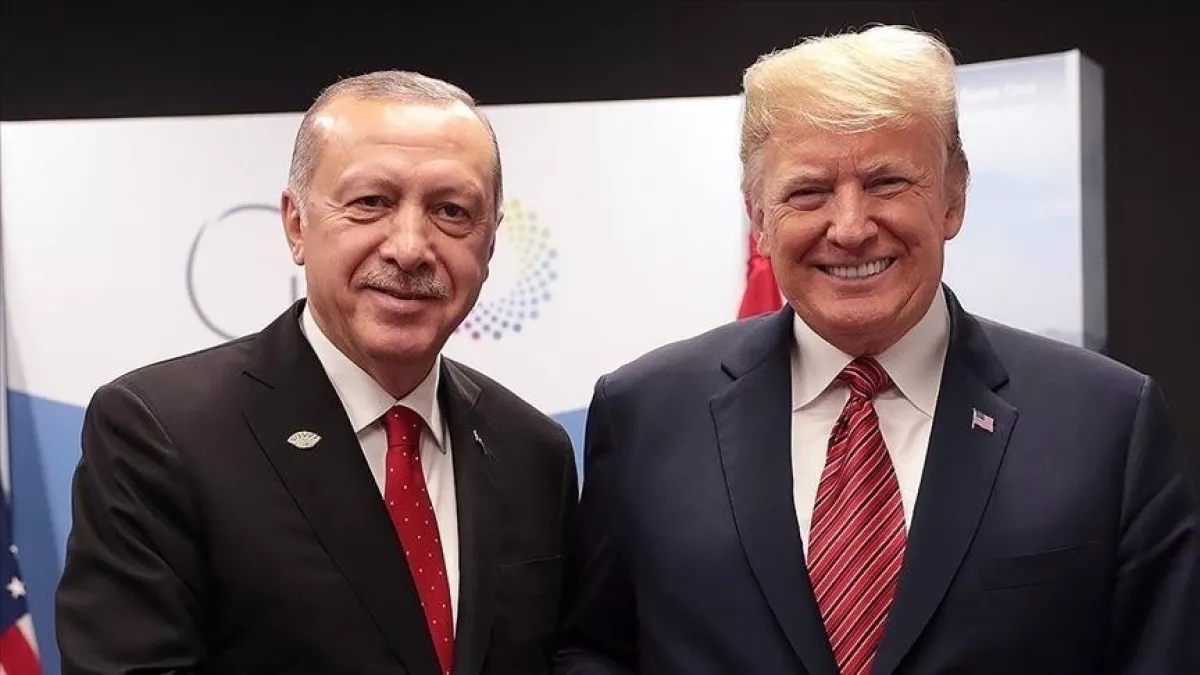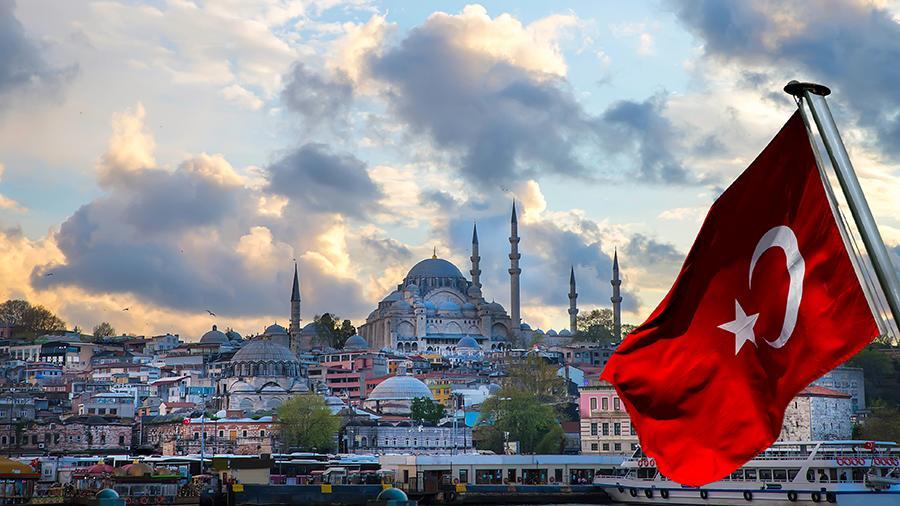Türkiye’s friendship with US and Europe’s cold shoulder The EU misses its chance
The meeting between the Presidents of the United States and Türkiye, which lasted 2 hours and 18 minutes, can rightly be called historic and pivotal. And this is not only because of the documents signed by both sides following the talks. Even more important is the context surrounding the meeting — Donald Trump was notably polite and highly respectful towards Recep Tayyip Erdoğan.
“We have been friends for a long time […] He's a highly respected man. He's respected very much in his country and all throughout Europe, and throughout the world,” Trump said, noting that the Turkish leader “ has built a tremendous military—a powerful military—and uses a lot of our equipment. And, it's an honor to have him at the White House.” These are undoubtedly the right words, spoken at the right time and in the right place.

In addition, a number of major agreements were reached. “A wide range of issues was discussed at the meeting, from defence and trade to energy, regional, and global challenges. Significant progress was made on several points,” noted Burhanettin Duran, head of the Communications Directorate of the Turkish Presidential Administration, on X (formerly Twitter).
For instance, the United States and Türkiye signed a memorandum of understanding on strategic civil nuclear-technical cooperation. “We have started a new process that will further deepen the deep-rooted and multidimensional partnership between Türkiye and the United States in the field of nuclear energy,” wrote Alparslan Bayraktar, the Turkish Minister of Energy, on X.
In addition, Turkish Airlines announced plans to order up to 75 Boeing 787 aircraft and is close to finalising a deal for another 150 planes amid ongoing negotiations with engine manufacturer CFM International. The Turkish carrier confirmed 50 firm orders and 25 options for the B787 in a statement to the Turkish Stock Exchange. The company also noted that talks with Rolls-Royce and GE Aerospace regarding engine procurement are still underway. Turkish Airlines further indicated that it is negotiating with Boeing for the purchase of 150 737-8/10 MAX aircraft, which depends on the outcome of discussions with CFM International. Significantly, there has also been notable progress on the issue of the United States selling F-35 fighter jets to the Republic of Türkiye.
In short, a new stage appears to be emerging in Turkish–American relations, one that stands in stark contrast to their character during Joe Biden’s presidency. This warming of ties between Ankara and Washington undoubtedly aligns with Azerbaijan’s interests, especially as Baku and Washington are also witnessing a convergence of positions.
In this context, special attention should be given to the speech delivered on 24 September 2025 by U.S. Ambassador to Türkiye Barrack at the panel “Voices of Diplomacy: Shaping America’s Role in the World.” He pointed to contradictions on the international stage, calling Ankara “America’s greatest ally in NATO” while noting that Europe continues to deny Türkiye membership in the EU. He described this exclusion as central to understanding bilateral tensions. It was a very timely and objective assessment of the situation, which is striking in its illogicality.
Türkiye controls the Bosporus and the Dardanelles — strategic straits connecting the Black Sea and the Mediterranean. During the Cold War, this was of decisive importance for containing the USSR. U.S. intermediate-range nuclear missiles were deployed on Turkish territory, followed later by key air force bases and early-warning systems that safeguarded the entire southern flank of the Alliance.

The Turkish army is NATO’s second largest, after that of the United States. Turkish forces helped ensure security in Afghanistan and today play a vital role in maintaining stability in both the Black Sea region and the Middle East. Modern NATO security architecture is simply unimaginable without Türkiye. For decades, Ankara has borne the costs and risks of serving as the Alliance’s “front line of defence.”
Today, Türkiye continues to demonstrate its commitment. As announced by Lithuanian Defence Minister Dovilė Šakalienė, a NATO Airborne Warning and Control System (AWACS) aircraft has been deployed in Lithuania with Turkish involvement. AWACS is a critical tool for air surveillance, tactical command, and operational response. It can detect targets at long range, coordinate air operations, and transmit information seamlessly to both airborne and ground units. This capability allows NATO partners to respond quickly to shifting security conditions and strengthens the Alliance’s collective defence posture.
Once again, Türkiye has played a decisive role in safeguarding NATO member states. Yet, against this backdrop, the European Union continues to pursue demonstrative political discrimination.
Türkiye first applied for membership in the European Union back in 1987. Formal accession talks began in 2005 but were soon effectively frozen. The reasons for this were not economic. For many years, Türkiye recorded steady growth, reformed its legislation, and aligned its legal and trade regulations with EU standards. The real resistance came from the political elites of several countries — most notably France, Austria, and Germany.
It may seem awkward to point this out today, but the loudest opponent was former French President Nicolas Sarkozy — the very same politician later convicted by a Paris court for criminal conspiracy in the so-called “Libyan affair,” which involved millions of euros allegedly received from Muammar Gaddafi to finance Sarkozy’s 2007 election campaign. It was Sarkozy who once declared, “Türkiye has no place in Europe.” Under his influence, Paris repeatedly blocked negotiations, citing so-called “cultural and civilisational differences.”
This is, without question, the peak of hypocrisy and double standards. The EU’s talk of “enlargement for the sake of values” and “open doors” apparently does not extend to a country whose army stands on the front line defending those very values. Meanwhile, states with far fewer economic and institutional resources were admitted at record speed, while Türkiye has faced artificial barriers for decades.
At a time when Europe’s security hinges on NATO’s unity, such an approach is not only fundamentally unjust but also dangerously shortsighted. Without Türkiye’s full integration, Europe will remain incomplete and vulnerable, while the political “game of exclusion” — with France acting as its most zealous player — will continue to erode collective security. It is high time for Brussels and Paris to correct this historic mistake. The sooner they do, the better for Europe itself.








